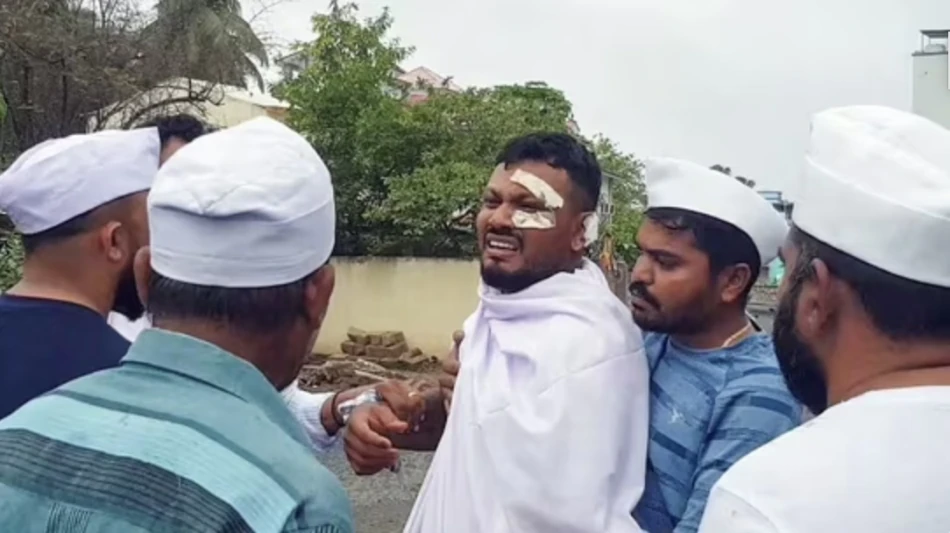
Sole Survivor of Indian Plane Crash Rejects 'Hero' Label, Haunted by Nightmares and Guilt
Sole Survivor's Burden: How Miraculous Escape from India's Deadliest Air Disaster Became a Psychological Prison
Vishwash Ramesh, the only survivor of a catastrophic Boeing 787-8 Dreamliner crash that killed 274 people in India, is struggling with severe psychological trauma, survivor's guilt, and recurring nightmares months after his miraculous escape. The British-Indian man's story highlights the complex mental health challenges faced by sole survivors of mass tragedies, even as he's hailed as a hero in India.
The Weight of Being the Only One
According to family members who spoke to The Times, Ramesh cannot accept the reality that he alone survived among 242 passengers and crew aboard the ill-fated flight. The crash, which occurred on June 12 during an attempted landing at Ahmedabad Airport in Gujarat state, has left him in a state of perpetual psychological torment.
"He doesn't sleep at night, and when he does, he sees himself back on the plane, watching passengers around him die... and wakes up terrified," a relative told the newspaper. The survivor has decided to remain in India rather than return to Britain, hoping the change of environment might aid his recovery.
The Crash That Shocked Modern India
The Boeing 787-8 Dreamliner struck a residential building belonging to a medical college hostel during its approach to Ahmedabad Airport, killing all aboard except Ramesh, along with several people on the ground. The disaster ranks among India's worst aviation accidents in modern history, not only due to the death toll but also because of the extraordinary circumstances of a single survivor emerging from such devastation.
The Psychological Reality of Sole Survival
Ramesh's condition reflects a well-documented phenomenon in disaster psychology. Sole survivors often experience more severe trauma than those who survive alongside others, facing what researchers call "survival guilt" – an intense psychological burden stemming from the question of why they lived when others perished.
Mental health experts note that survivors of mass casualty events frequently struggle with the randomness of their survival, particularly when family members are among the victims. Ramesh lost his brother in the crash, compounding his psychological distress with personal grief.
When Heroism Feels Like a Curse
Despite being celebrated as a hero in India, Ramesh reportedly rejects this characterization entirely. This response is typical among trauma survivors who view their survival as arbitrary rather than heroic. The disconnect between public perception and personal experience often intensifies the isolation felt by sole survivors.
The case mirrors other famous sole survivors, such as Cecelia Cichan, who survived a 1987 plane crash in Detroit as a 4-year-old, and Bahia Bakari, the sole survivor of a 2009 crash off the Comoros Islands. Both faced similar psychological challenges, though their young ages at the time of survival provided different coping mechanisms.
Aviation Safety and Human Resilience
The Ahmedabad crash raises questions about approach safety protocols at Indian airports, particularly given the aircraft's collision with ground structures. The Boeing 787-8 Dreamliner, generally considered one of the safest commercial aircraft, had been approaching in what initial reports suggested were challenging weather conditions.
For India's aviation sector, which has experienced rapid growth in recent decades, the disaster underscores the critical importance of comprehensive safety measures as air traffic continues to increase. The country's aviation authorities have since implemented additional safety reviews at major airports.
The Long Road to Recovery
Ramesh's decision to remain in India suggests he may be seeking closure near the site of his trauma, a approach sometimes recommended by trauma specialists. However, his ongoing nightmares and sleep disruption indicate he will likely require professional psychological intervention to process his experience.
The case highlights broader questions about support systems for disaster survivors, particularly in cases where the survival circumstances are so extraordinary that few can relate to the experience. As Ramesh continues his difficult journey toward psychological healing, his story serves as a reminder that surviving a disaster can sometimes feel like its own form of suffering.
Most Viewed News

 Sara Khaled
Sara Khaled






